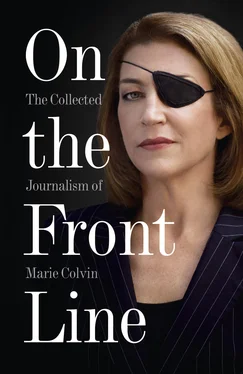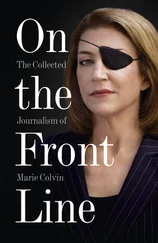1 ...7 8 9 11 12 13 ...25 Critics say the American and British governments have ignored evidence that the attack was ordered and paid for by Iran, in retaliation for America shooting down an Iranian jet, and that Iran contracted out the bombing to Ahmed Jibril’s PFLP-GC, a radical Palestinian faction based in Damascus, with Syrian connivance.
According to a well-documented line of investigation, Jibril only turned to Libya for help in completing the operation after his own men were arrested by German police. Neither Washington nor London wanted to alienate the Syrian and Iranian leaderships at the time of the investigation, which coincided with the Gulf War.
Relatives of the victims are enraged. ‘It’s like trying the hit man and ignoring the person who paid him to pull the trigger,’ said Susan Cohen, whose daughter, 20, was killed. ‘Nobody thinks that these two guys sat in a café and decided to bomb an aeroplane.’
Even the conviction of the Libyans is by no means certain. Prosecutors fear they may have insufficient evidence. No witness, fingerprint or any other forensic evidence links either of them directly to the explosion.
None the less, all the might of the British and American governments has been brought to bear on Gadaffi through the UN to surrender the men, and Libyan sources said yesterday that he had finally been convinced that neither country would accept any compromise.
Travel and diplomatic sanctions were imposed last year, and on Friday the UN security council tabled a draft resolution imposing further sanctions if Gadaffi does not surrender. Apparently at the request of Boutros Boutros-Ghali, the UN secretary-general, the vote has been delayed to give Gadaffi time to declare his intentions. The denouement could come this week.
Gadaffi has been assured that the pair will get a fair trial in Scotland, where the stringency of evidence laws would give them the best chance of acquittal. He has also been promised that they would not be interrogated by MI6 or any other security agency. Security sources see this as an important concession because the men cannot be forced to reveal any Libyan secrets.
The British have even told the Libyans that Scottish cells are ‘very comfortable’ and that the men will be taught English – a puzzler for Libyan negotiators, who thought the Scots spoke Scottish. The farce continues.

Under fire
27 January 1991
Hussein stood alone in the carpet souk on the eastern bank of the Tigris, fingering his ivory worry-beads and gazing at the huge sun setting behind the Ottoman tenements on the far side of the river. The dying sunlight washed his dishdasha robe a wintry red.
The market square of the souk usually bustled at this time of the early evening as people stopped to gossip or do last-minute shopping on the way home from work. But it was 15 January, the United Nations’ deadline for Iraq’s withdrawal from Kuwait. Baghdad was silent and edgy. The souk was deserted.
Hussein greeted me with far more warmth than our acquaintance merited. I had visited him on and off in his shop over the past five months, using the excuse of fingering a Kurdish bangle, or looking at a carpet, to pick up the rumours and rhythms of daily life in Baghdad. For him, it had been an excuse for a rare talk with a foreigner, something that for an Iraqi is akin to a visit to the confessional.
Now, in this chance encounter, we seemed the only people left in the capital. We walked to his shop under the vaulted roof of the souk. Inside, there was none of the usual salesmanship or the ritual cup of sugared tea. ‘Would you like a whisky?’ he asked, and picked up a half-full bottle of Whyte & Mackay. He poured us two tea glasses full.
Amid the clutter of piled up carpets, silver necklaces, antique frames, heavy Kurdish belts and, beside the ubiquitous picture of Saddam Hussein, a likeness of President John F Kennedy beaten into a copper plate we discussed whether he should stay in Baghdad or take his family to a place safe from American bombs, as other merchants had.
Tareq, who owned the House of Antiquities across the street, had taken his wife and sons to Kurdistan in northern Iraq. ‘The Americans like the Kurds, they won’t bomb them,’ he had said.
Hussein agonised. Baghdad was home; perhaps thieves would come to the empty souk and steal his carpets; but there was no business anyway because everybody was hoarding their money.
We drank another tea glass of whisky, standing up, too edgy to sit down. His wife, five children aged two to 12, younger brother and mother were at home waiting. His children had their school exams on the 20th; if they missed them, it would mean losing a year of school. ‘But perhaps it is better that they lose a year than that they lose their lives,’ he said.
Darkness was falling and we walked out of the shop. He said: ‘If you have any problems you can come to my house. Really.’ For an Iraqi, it was an enormous act of faith. A visit by a foreigner in this tightly controlled society meant a follow-up visit by the security police. But these were extraordinary times. It was a way of saying we were not enemies. I drove back to the Rashid hotel through dark and deserted streets.
Baghdad is normally a bustling city. Although its glorious antiquity was long ago buried under drab concrete, its spirit was irrepressible, even at the height of the first war in the Gulf, when taxis returning from the front with coffins on their roofs raced among the fierce traffic on its highways. To see the city now was chilling.
Many middle-class families had closed their homes and left to stay with relatives in the country after the failure of the talks in Geneva between Tariq Aziz, the foreign minister, and James Baker, the American secretary of state. Others held out, fiddling for good news between the BBC, Voice of America and the pan-Arab station, Monte Carlo.
They had heard the ominous tone in Saddam’s speech on Friday to an Islamic conference in Baghdad. They had heard Joe Wilson, the American chargé d’affaires, dramatically announce as he left on Saturday: ‘This is the last flight out.’ They knew most western diplomats had left with him.
But even illiterate taxi drivers held an irrational faith that Javier Perez de Cuellar, the United Nations secretary-general, might be able to avert war when he arrived to see Saddam at the weekend. ‘Maybe Saddam will leave Kuwait,’ the taxi driver said as he drove me to Perez de Cuellar’s news conference at the airport. When the secretary-general said ‘only God knows’ if there would be a war, it was the last straw. Iraqis knew Saddam was ready to take on the world.
Everybody was jumpy. We lost our way leaving the airport and when we drove up to a checkpoint to ask a soldier for directions, there was an audible click as he flipped the safety catch off his AK-47 and walked up to the car with the barrel pointed through the window.
There were many poignant moments in those days overshadowed by the deadline. The most striking thing perhaps, to somebody who had been visiting Iraq on and off since the crisis began, was the sudden openness of the usually careful and closed Iraqis.
This is a society that usually keeps its head down and offers no political opinions. Most dissidents are dead or in exile. The tiny middle class would, in general, be glad to see Saddam’s regime fall; but the merchants did well out of the war against Iran and reached an accommodation with those in power. The urban poor, who have enjoyed cheap, and even free, housing and subsidised food under Saddam, are compliant to his will. The long war against Iran united society and now I found that his stand against the world was filling many Iraqis with pride as well as fear.
Читать дальше













